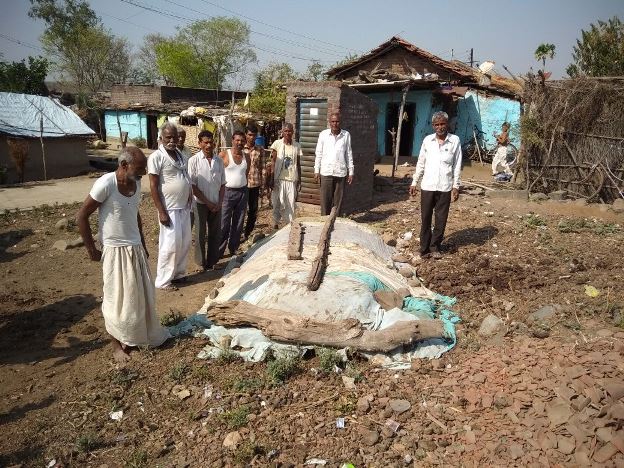10 good reasons why farmers should use compost over chemical fertilizers
10 Benefits of Composting
Composting is a natural process and if we want to scale the production then we need to increase this natural process to meet the demand of the current food supply. Composting is a win-win situation for all of us.
- Yard and food waste make up 30% of the waste stream. Composting your kitchen and yard trimmings helps divert that waste from the landfill, waterways, and water treatment facilities.
- You will significantly reduce pest problems–and your use of pesticides.
- Healthy plants from healthy soil look better, produce better, and have a much greater ability to fight off pests and diseases.
- Adding organic materials to the soil improves moisture retention.
- Adding decomposed organic material to the soil feeds beneficial organisms.
- Compost amends both sandy and clay soils.
- Compost provides a balanced, slow-release source of nutrients that helps the soil hold nutrients long enough for plants to use them.
- Composting saves money–you avoid the cost of buying soil conditioners, bagged manure, etc.
- Feeding your plants well will improve your own diet. Plants grown in depleted soils have a reduced nutrient content.
- Home composting is a valuable tool in educating children about nature and the cycle of life.
Do you like the Article ?, keep reading it !
Sometimes simple solutions are easily ignored by the common people, regardless of its benefits.
Climate Change Issue could be avoided by just planting more and more trees
but we are looking for fascinating options to deal with climate change. This goes true for farmers also, if a Pesticides dealer tells some fascinating products to manage pest and improve production, farmers are easily tilted towards their suggestions without applying their own thoughts. Compost is one of the best material for microbial activities which works as dots to achieve increase in production and maintaining farm biodiversity.
TRADITIONAL METHODS OF COMPOSTING
There are two types of decomposition, Anaerobic Decomposition, and Aerobic decomposition. There are several models developed by the experts and scientists who tested these modals and now our farmers are using them in different parts of the countries.

- The Indian Bangalore method
- The Indian Indore method
It has further elaborated in two different where you can use :
- Pit method
- Heap method
We commonly promote the Heap method where we need not dig any pit and if the material is above the earth then due to aeration, fast decomposing of raw cow dung and biomass is witnessed.
Green manuring and its benefits:
This model is quite prevalent in the 21st century and
farmers are understanding the value of green manuring as it helps in managing, soil moisture, improves soil structure, deals with pests, and provides manure to the crops through gradual decomposition of green biomass.
There are two types of Green Manuring is prevalent in these days which are :
- Green manuring in situ
- Green leaf manuring
4)Vermicomposting and its Pros and Cons:
I believe Vermicomposting is an overhyped model
where everyone is telling their own story of yield increase due to vermicompost.
Vermicompost has very little NPK content, the worms are basically produced outside of the farm and many times it was witnessed by the farmers that, commercially reared worms hardly survive due to less resistance to harsh climatic conditions. Basically, vermicompost helps in microbial activity in the field which gradually improves the soil health and increases the production rather than substantial direct benefits were missing from vermicompost.
To conclude, any of the composting is best for farmers rather than using harsh chemical fertilizers and pesticides. The government is providing subsidies for Agri-Entrepreneurs who are willing to take it up as the source of earning. Farmers are motivated to shift towards Zero Budget Natural Farming and Organic farming where composting is the base of the program. Farmer needs to consider sustainability rather than instant magic solution to boost production.
In the coming articles, the method of composting will be elaborated individually.